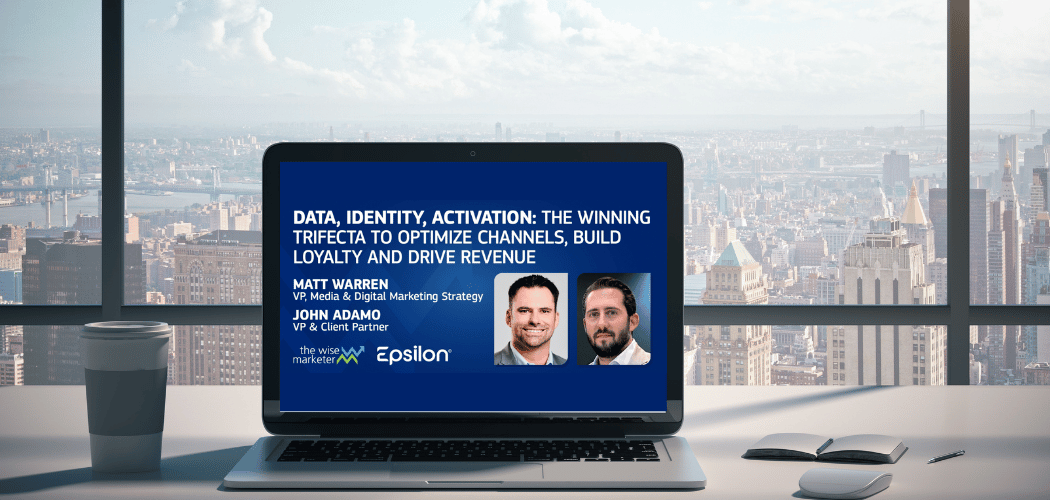Its time to address the gap in what data aggregators say and what they do.
By Mike Giambattista
Last week anyone with a keyboard and an opinion had something to say about Facebook’s silence & complicity when it became clear that Cambridge Analytica was more than just a marketing company. The media was breathless as they anticipated what Zuckerberg might say if & when he actually did. In them, it seemed for a moment as if we had all found a new enemy of state and someone to wag our fingers at.
And then Zuckerberg delivered a beautiful, sincere mea culpa and we all sighed and returned our focus to whatever had been consuming us a couple of weeks prior.
But all is not well in the land of Facebook.
The hashtag #deletefacebook became a genuine meme as people started to wake up the realities that their personal habits, profiles, preferences, purchases, friends and family were all being sold on the open market – oftentimes to people with less than magnanimous intentions.
I think the hashtag and the sentiment are missing the point. You can delete Facebook if you want but let’s face it, it’s not really that easy to do. And there are at least a couple of things that show up each day that don’t have to do with fringe politics and cat videos. And there may actually be value in the platform.
What if, instead of throwing the Facebook baby out with the bathwater, we gave Facebook an ultimatum of sorts. What if, instead of deleting Facebook altogether, we told them to reform their policies – with direct, explicit guidelines – and if they chose not to conform, then we would hit the delete button.
GDPR is some scary stuff.
What’s happening in the UK and in Europe should scare the wits out of any organization that collects customer data – no matter how small or insignificant, in the rest of the world. The General Data Protection Regulation (GDPR) are a set of data reforms that were enacted specifically because regulators and data collection companies had no clear guidelines – or consequences to ensure they were adhered-to. GDPR is no joke - the people behind the regulations have put real teeth in them. Penalties for even the smallest infractions are calculated, in some cases, as percentages of revenue. Let that sink in for a moment.
To be sure, GDPR is a two-sided coin. It provides for a comprehensive set of consumer-oriented data policies. But the other, less shiny side of that coin is the fact that we need them at all.
EULAs are not your friends.
Every one of us have signed or agreed-to a whole host of End User License Agreements (EULAs). We don’t have a choice. If we want to use the software, the platform, the app, the website, we are often REQUIRED to agree to the terms of the EULA in order to do so. That’s common practice in the digital world and it’s a common expectation for the consuming public. But I’ll be the first to admit that I’ve never actually read one. Not one of them. And I’ve probably agreed to several hundred of them over time. And that’s a problem because EULAs are drafted by legal teams to protect the providers.
In my world I deal with contracts and agreements and proposals all day long. Some of them are simple one or two-page documents and some of them are voluminous in their breadth and complexity. But when the parties are there to create something of benefit for both sides, they will often provide summary documents as attachments or as guides to help find and understand the more salient points.
Why don’t EULAs come with summaries? It would seem like a common-sense practice for an organization (like Facebook) that spends millions of dollars to optimize their user experience. The answer is simple. EULAs don’t come with summaries because they are not drafted for the benefit of both parties.
If you’re out there, a big tip of the hat to companies who are drafting consumer-friendly EULAs or are at least providing some way for users to understand what they are agreeing to. I’ve never seen a EULA that did so but that certainly doesn’t mean they don’t exist. I’ve never actually seen a unicorn either.
Maybe reform starts in Loyalty?
The Wise Marketer publishes to an audience largely made up of customer loyalty marketers, customer experience professionals, data analysts and the people who direct those efforts. Collectively, we speak of, and create systems that are designed to engender trust. We would all be aghast at an organization that overtly pledged to confuse, bamboozle or cheat their customers. And yet, in a very real sense, that’s what these same companies are doing with their EULAs.
What if we took our understanding of the psychology of motivation and came up with an incentivized way to get companies to be more transparent with their EULAs? What if we applied our expertise holistically – to the entire continuum of the customer journey and gamified or rewarded companies who did so?
Should there be a difference between “Customer Experience” vs “Consumer Experience”? Should companies still be able to force users like you and me to sign agreements that are confusing and in the end, one sided? These are easy questions to ask and it’s a good moment to ask them. And the answers to them are only slightly more difficult. Maybe its time we opt for consumer/provider relationships that are just a little less nefarious.
Just a thought.
Mike Giambattista is Editor in Chief at The Wise Marketer and is a Certified Loyalty Marketing Professional (CLMP).




